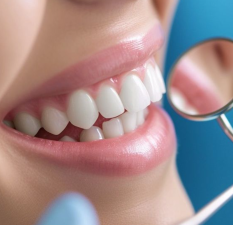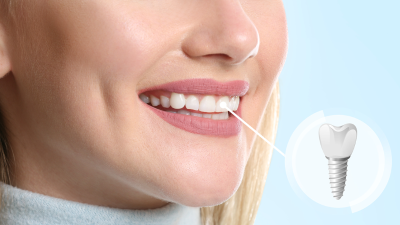Damaged teeth can be stressful and cause varying levels of pain and discomfort, ranging from mild sensitivity to severe toothache. Damage to your teeth can affect your smile and overall appearance. It is especially painful if the damage can be seen when you speak or smile. Many people emphasize the beauty of their teeth, and damaged teeth can affect confidence and self-esteem. Teeth play a vital role in chewing and speech. When a tooth is damaged, it may hinder your ability to bite and chew properly, making it difficult for you to eat certain foods.
Damaged teeth can be stressful and cause varying levels of pain and discomfort, ranging from mild sensitivity to severe toothache. Damage to your teeth can affect your smile and overall appearance. It is especially painful if the damage can be seen when you speak or smile. Many people emphasize the beauty of their teeth, and damaged teeth can affect confidence and self-esteem. Teeth play a vital role in chewing and speech. When a tooth is damaged, it may hinder your ability to bite and chew properly, making it difficult for you to eat certain foods.

Let's start with tooth decay. What is tooth decay? How did it form?
Tooth decay is also called caries, according to the literal meaning of the understanding is that the teeth are corroded, resulting in dental holes (wormholes), as the saying goes "toothache is not a disease, it hurts like hell", toothache is so tormented. Usually do not pay attention to oral cleaning, so that the bacteria on the surface of the teeth break down the sugar in the food, produce acidic substances, corrosion teeth, resulting in tooth decay. The cavity will turn black, and gradually the decay of the tooth will become more and more severe, and half of the tooth will be lost in a flash.
Tooth decay has a process of evolution. When eating some sour and cold food will feel very stimulating, so that the teeth produce a sore feeling. This time is already the middle of tooth decay. Early tooth decay is in the enamel on the surface of the tooth, and we usually don't feel any obvious symptoms.
Differentiation of tooth decay severity
- Superficial caries: Caries are damaged in the enamel or root cementum layer, and patients generally have no obvious symptoms, most of which are found during routine examinations
- Medium caries: The front of the lesion is located in the shallow layer of the dentin, and obvious cavities can be seen or detected in clinical examination, or found in X-ray photography. Patients have more conscious symptoms, mainly manifested as eating cold, hot or sour, sweet food, stimulation into the hole caused by transient sensitivity symptoms
- Deep caries: The lesions progress to the deep dentin, and obvious cavities can be observed clinically, which are deep and close to the pulp cavity. Patients have obvious sensitive symptoms after hot and cold sweet and sour stimulation, and can also have temporary pain symptoms when food impaction
Root caries: When the gum recedes and the root surface is exposed, the caries that occur on the root surface of the tooth are called root caries, also known as root caries.
- Aggressive caries: caries of all teeth or multiple teeth and multiple tooth surfaces in a short period (6-12 months); The lesions showed the characteristics of acute caries. Most of them occur in susceptible people with specific pathogenic factors or systemic background. In view of the extremely rapid process of such lesions, it is clinically called aggressive caries or rampant caries.
Your dentist has several treatments at their disposal to help fix a cavity. The one they use depends on the severity of your tooth decay. Some treatment options include:
- Dental fillings
- Crowns
- Root canal
- Solea laser
Dental Fillings
A dental filling is a common way to treat cavities before they become infected. There are many kinds of fillings available today, both metal and tooth-coloured, which help fill in the damaged areas of your tooth.
Depending on the material used, your procedure may have some extra steps. The overall filling process includes:
- Using an anesthetic to numb the affected area
- Removing the decayed parts of the tooth
- Testing the area to ensure decay is gone
- Filling the tooth with the chosen filling material
- Finishing & polishing the tooth
The bottom line
Vitamin D, oil pulling, licorice lollipops, chewing gum, and other home remedies won’t get rid of existing cavities on their own. But these methods may keep cavities from getting bigger and prevent new ones from coming. At best, they can help remineralize softened or weakened areas of your enamels before a cavity can develop.
The earlier a cavity is detected, the easier it will be for your dentist to repair it, so be sure to visit your dentist regularly.


